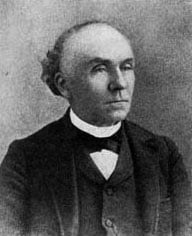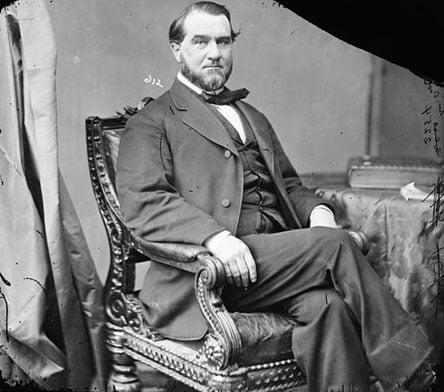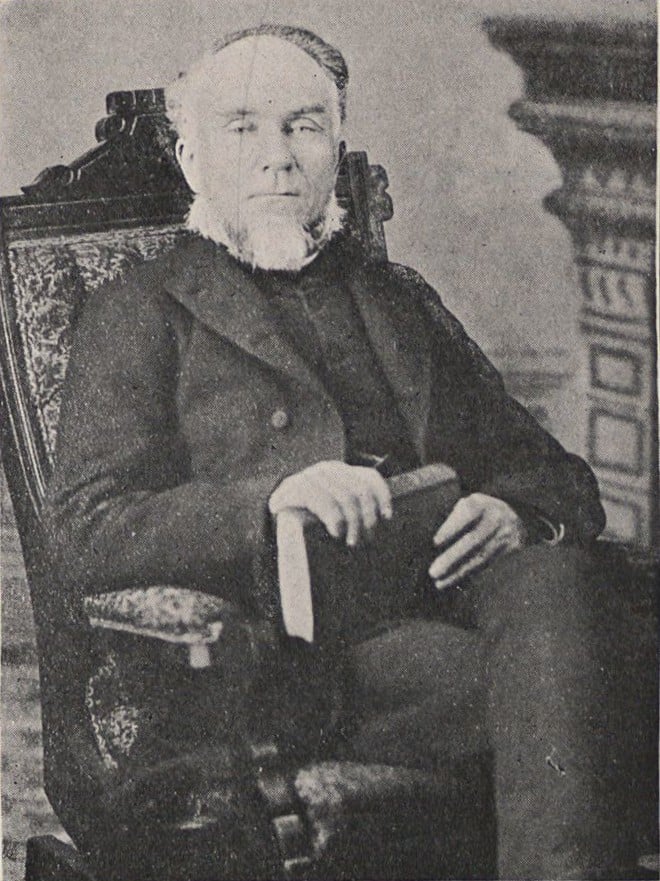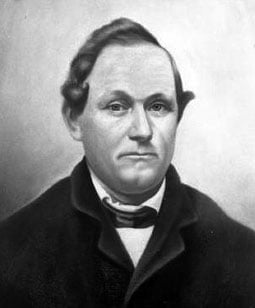Who Was Solomon Pool?
Solomon Pool was a famous educator, the University of North Carolina’s fourth president, and clergyman. His role as an educator made him famous and ranked amongst the wealthiest educators in the United States of America.
Early Life
Solomon Pool was born on April 21, 1832, at Elmwood on the Pasquotank, the Pool plantation near Elizabeth City, North Carolina. His father, also Solomon Pool (April 28, 1787–January 10, 1832), was a wealthy slaveholding planter of English descent from a family prominent in northeastern North Carolina since 1679 (first Pool, also named Solomon, emigrated from Middlesex to Pasquotank in the 1670s). His mother, Martha (Gaskins) Pool (November 10, 1797–February 17, 1838), was of French Huguenot ancestry.
Quick Facts
- Full Name
- Solomon Pool
- Death
- September 2, 1896
- Children
- Edward (b. 1860), Clarence (b. 1863), Warren (b. 1867), Clifton (b. 1869), Eugene (b. 1871), Theodore (b. 1873), Cornelia (b. 1875), Lillie (b. 1878)
- Nationality
- American
- Place of Birth
- Elizabeth City, North Carolina
- Fields of Expertise
- [“Inventor”]
- Institutions
- University of North Carolina
- Contributions
- Adding Machine

Solomon was the last of 7 children (5 boys and 2 girls). Unfortunately, his father died before his birth, and his mother died when he was only five. Young Solomon was raised on the plantation by his eldest brother, George Decatur Pool (1817-1879) (see the nearby image), a farmer, philanthropist, and county commissioner who became active in the Republican party. Besides George, Solomon had two brothers of note: John (1826–1884), a lawyer and U.S. senator, and William Gaskins (1829-1887), a physician.
Solomon prepared for college in Elizabeth City and entered the University of North Carolina in 1849 (his brother John graduated 2 years before). Solomon graduated in 1853, the second honor student in a class of 59.
Career
University of North Carolina
While in the University, he was a member of the Philanthropic Society. In December 1853, he became a mathematics tutor at the University, and in 1856 he received an honorary alumni master’s degree. In 1861 Pool was promoted to adjunct professor of math and held the position for five years. In 1866 Pool took a leave of absence to accept a more lucrative position ($5,000 per year) as U.S. deputy appraiser in North Carolina, with the agreement that the floundering University would not be obligated to reemploy him until he was needed.
In 1869 Pool returned to the University of North Carolina to accept the presidency (he was permitted to keep his appraiser’s job at the same time). Reconstruction governor William W. Holden had taken charge of the University’s board of trustees to ensure that someone with the appropriate Republican affiliations would be chosen as president. At thirty-seven, Pool seemed to fit their specifications and was hired for $1,500 per year. Although brought up within the realm of slavery, Pool rejected its basic ideas.

While Pool was president, the University continued its postwar deterioration. Buildings were neglected and overgrown, and campus trees were cut down for firewood. Pool incurred the wrath of many North Carolinians by, among other things, charging that the University was ruled too much by the landed eastern aristocracy and said that if no white students came to fill classes, he would enroll blacks.
In January 1871, Pool addressed alumni and friends of the University, pleading for money to pay off the University’s debts. However, it was too late — the trustees decided that the institution should close on February 1, 1871, and Pool’s title was taken away by a court order. He then became principal of a school in Cary for three years. During this time, he invented his adding machine.
Church
At age fourteen, Pool converted to the Methodist Episcopal church in Elizabeth City and became licensed to preach in 1856. He was ordained deacon at Raleigh in 1862 and elder at Fayetteville in 1865. He preached once a month at the college chapel while in Chapel Hill and was often called upon to preach in various North Carolina cities after he left the University. In 1885 Pool was received into the North Carolina Conference of the church and was sent to Smithfield. He was transferred frequently, filling in wherever needed, to towns such as Charlotte, Greensboro, Concord, and Camden.
What Was Solomon Pool Known For?
Educator
Solomon Pool was a successful and famous educator in the United States of America. While pursuing his master’s degree at the University of North Carolina, Pool also became a mathematics tutor. He, later on, received an honorary alumni master’s degree, and in 1861 he was promoted to adjunct professor of math. He became a sought-after educator, and while at the University, he landed a lucrative position of $5,000 a year as a U.S. deputy appraiser in North Carolina. He later returned to the University of North Carolina in 1869 to accept the presidency. Although his management of the University didn’t end well, and a court order saw the University closed and Pool stripped of his title, he later went on to become a principal of a school in Cary.
Adding Machine
In 1873 while serving as a principal of a school in Cary, Pool invented and patented a small and handy adding machine (U.S. patent 143184).
The adding machine of Pool was a cylindrical adding device with a numerical capacity of 999 (although Pool mentioned that a ring for thousands, or rings for any number which represents a power of ten, may be employed). The input and zeroing of the device were made by rotating the rotary plate B, b, b’, which can be rotated in both directions. The tens carry mechanism was implemented using a pawl, which catches a ratchet-tooth, and carries the motion to the next ring.
Clergy
Pool became licensed to preach in 1856. In 1862 he was ordained as a deacon at Raleigh and an elder at Fayetteville in 1865. Pool preached in the college chapel and various North Carolina cities until 1881 when he was received into the North Carolina church conference and was sent to Smithfield.
Solomon Pool: Marriage, Children, and Personal Life
Net worth
Solomon Pool’s primary income source was an educator. Before his death, Pool’s net worth was estimated to be $1-5 million.
Marriage & Children
Solomon Pool married Cornelia Kirkland (1835-1914) (the daughter of Joseph and Martha Kirkland) of Chapel Hill on June 9, 1856. The Pools had six sons and two daughters: Edward (b. 1860), Clarence (b. 1863), Warren (b. 1867), Clifton (b. 1869), Eugene (b. 1871), Theodore (b. 1873), Cornelia (b. 1875), and Lillie (b. 1878).
Tragedy
On September 2, 1896, while ending a revival sermon at South Mills in Camden County, NC, Solomon Pool was stricken with paralysis. He recovered partially but remained in poor health and died five years later, on April 8, 1901, in Greensboro, NC.

The image featured at the top of this post is ©Public domain, via Wikimedia Commons – License / Original

